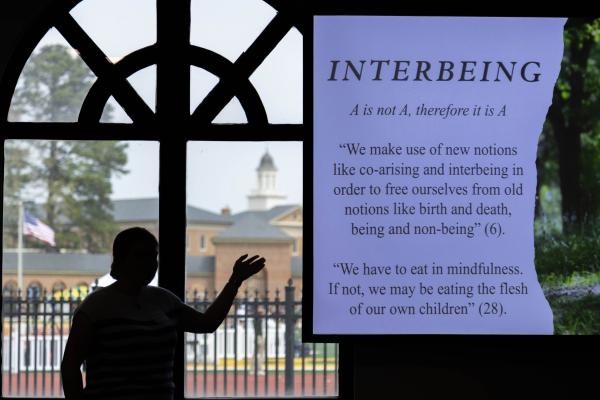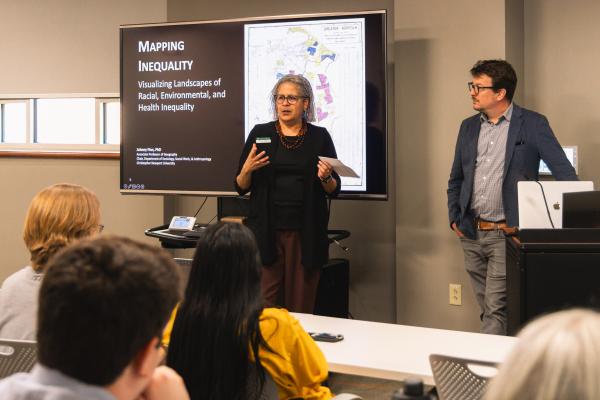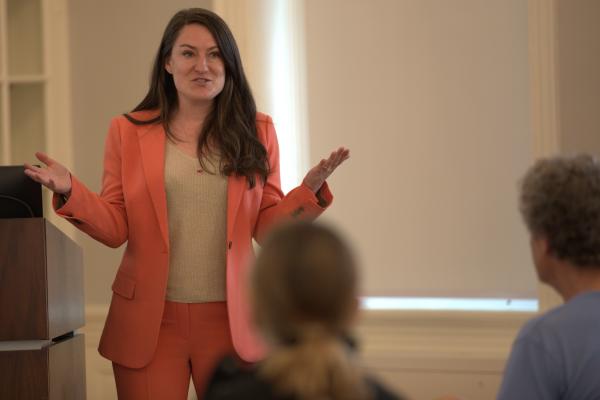Students share honors research that shaped their W&M experience
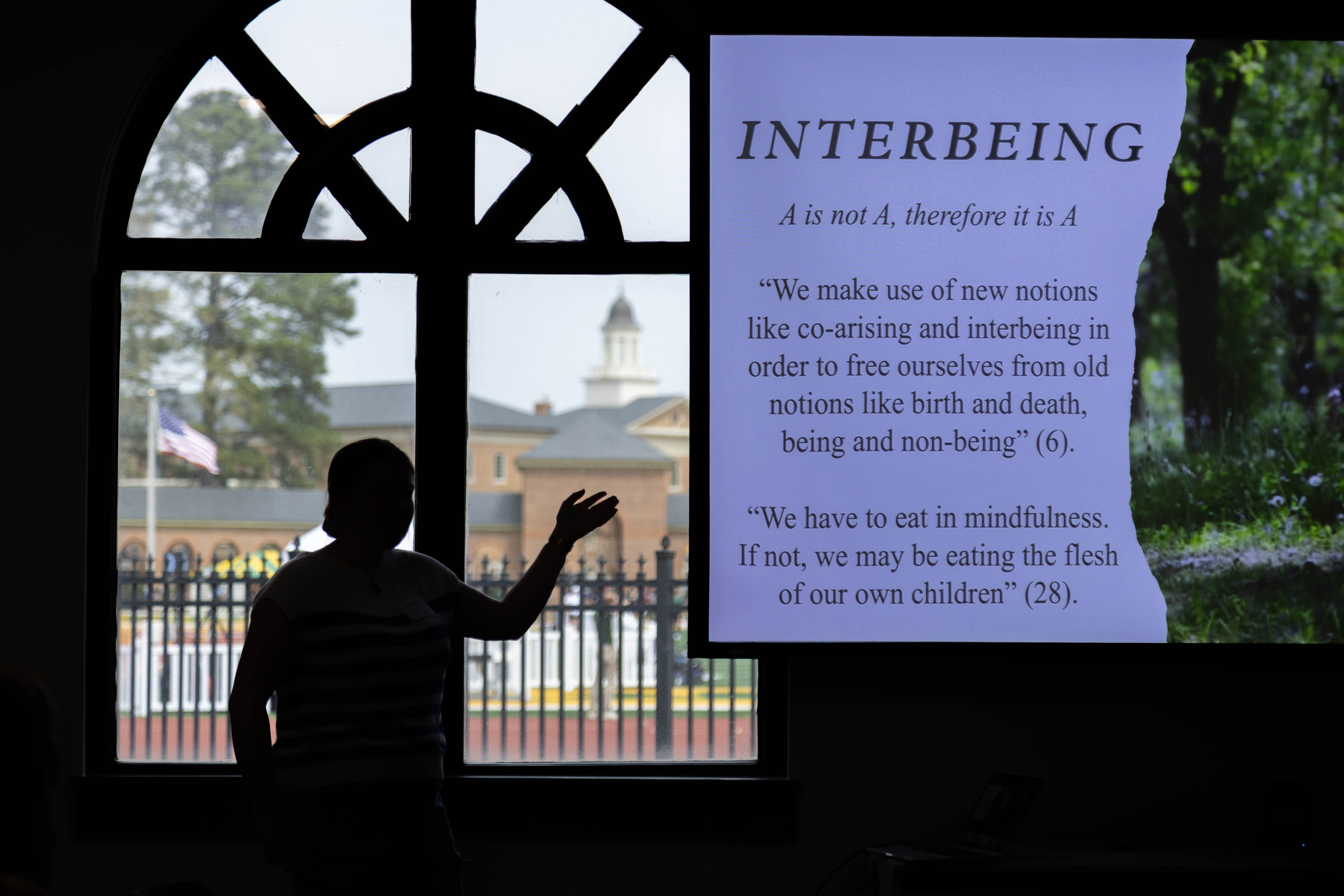 Over 100 senior Honors students presented their thesis projects at the
Charles Center’s Spring Honors Research Symposium April 3-4 in Sadler Center.
Over 100 senior Honors students presented their thesis projects at the
Charles Center’s Spring Honors Research Symposium April 3-4 in Sadler Center.
For many, the symposium capped a transformative research journey that focused —perhaps even defined — their William & 玛丽 experience.
“Researching and writing my thesis has been the most rewarding and best academic experience of my time at W&M,” said history major Joe Shaklik ’25.
Projects featured at the symposium reflected a mosaic of fields representing the diverse interests of William & 玛丽’s student body, ranging from advanced STEM studies to immersive research in the humanities.
Shaklik, for instance, conducted his thesis on the psychological effects that the US government's response to Cold War nuclear threats had on children. His research connected these effects to the rise of activist social movements as this generation reached maturity during the 1960s.
“I am thankful for my summer research grant, which enabled me to travel to incredible places in New Mexico and Nevada to research culture and history. Working so closely with my advisor, Hiroshi Kitamura, has been an enlightening experience, and his insight is priceless.”
 The
symposium kicked off April 3 with the Barr Prize in Public Speaking Competition, where five finalists presented their research for prizes up to $1000.
The
symposium kicked off April 3 with the Barr Prize in Public Speaking Competition, where five finalists presented their research for prizes up to $1000.
The following day, almost 50 honors students gave 10-minute research talks, while nearly the same number displayed their work during one of two poster sessions.
During the first poster session, anthropology major Erin Cooper ’25 presented her research on the historical significance of an instrument called the jaw harp based on archeological evidence in Colonial Williamsburg. She studies the connection between sites where jaw harps were excavated and socioeconomic status, providing a new perspective into colonial life.
For Cooper, the experience was deeply valuable both personally and in terms of her professional development.
“This research experience has exposed me to so many different aspects of archaeology, from historical research, to excavation, conservation, analysis, and more — and I get to experience it all through W&M and the Colonial Williamsburg Foundation,” she said. “It has also given me the opportunity to combine my love for music and archaeology and to feel more connected to my grandma who remembers her own father playing the jaw harp for her as a child.”
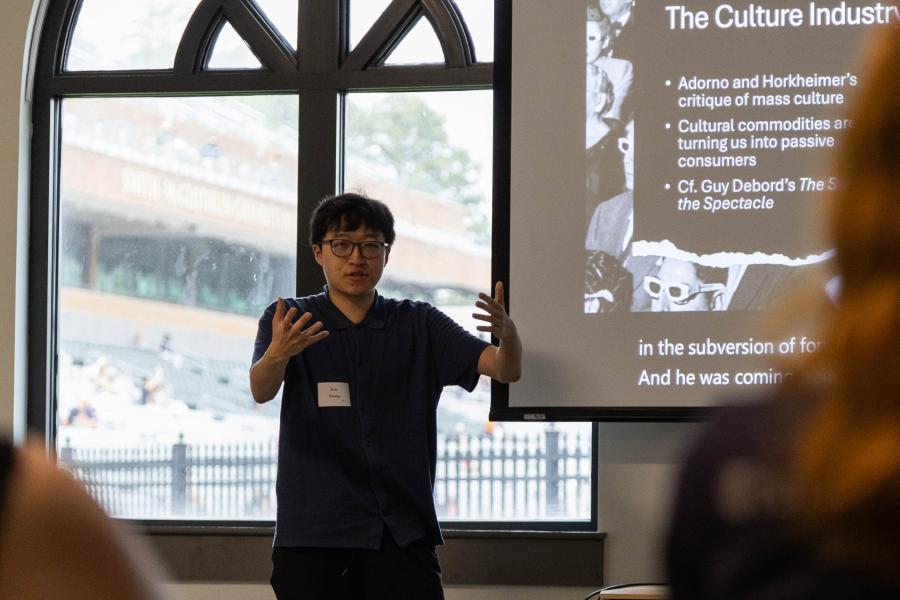 In the second poster session,
biology and
integrative conservation double major Emma Lankford ‘25 explored the Williamsburg landscape to research a different kind of living history. Using a combination of field sampling and spatial modeling, Lankford investigated the main factors that determine crayfish abundance in local waters.
In the second poster session,
biology and
integrative conservation double major Emma Lankford ‘25 explored the Williamsburg landscape to research a different kind of living history. Using a combination of field sampling and spatial modeling, Lankford investigated the main factors that determine crayfish abundance in local waters.
“Many species, like crayfish, rely on specific habitat conditions. Knowing more about the environment that crayfish prefer to live in will help scientists and land planners know which areas to prioritize for their conservation,” Lankford said. “Especially since many crayfish are an indicator species for water quality, knowing how to protect crayfish can help to protect aquatic ecosystems as a whole.”
Lankford says that the expertise she has gained in the process of conducting her thesis is invaluable to her future in conservation work.
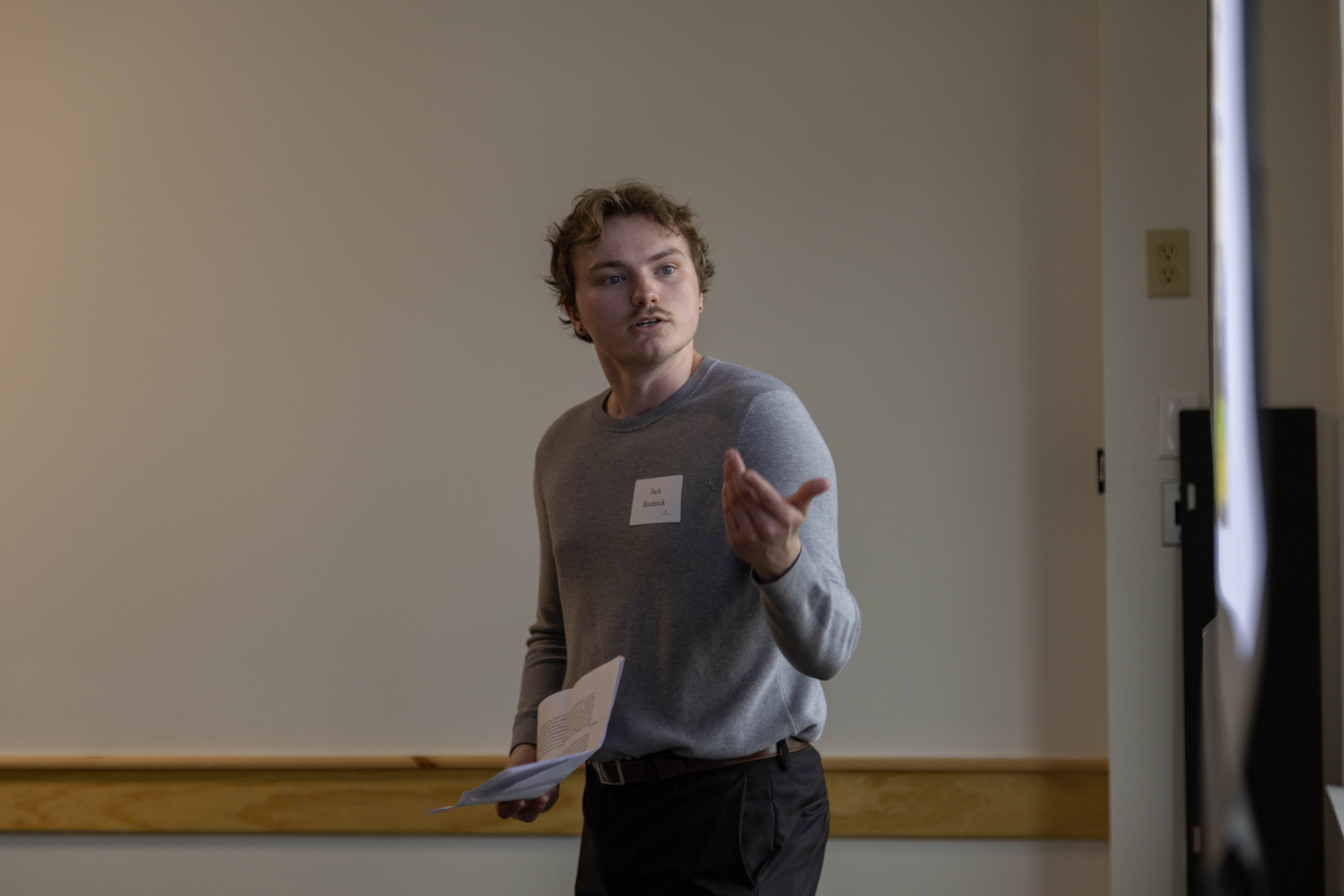 “I have always loved nature and wanted to help make it better. When I started college, I knew that I wanted to apply my skills to conservation challenges,” she said. “The analytical and technical skills that I have honed through my thesis work will help me continue applying myself to solving conservation challenges in the real world after graduation.”
“I have always loved nature and wanted to help make it better. When I started college, I knew that I wanted to apply my skills to conservation challenges,” she said. “The analytical and technical skills that I have honed through my thesis work will help me continue applying myself to solving conservation challenges in the real world after graduation.”
Like Lankford, English and psychological sciences double major Brian Des Roches ‘25 also combined aspects of both fields of study to formulate his honors thesis, which explored the impacts of language choice on social perceptions of autistic individuals. He presented his work in a research talk at the symposium.
Specifically, Des Roches studied the effects of person-first language on perceptions, as compared to identity-first language. Person-first language separates the individual from the condition, such as referring to someone as a “person with autism,” whereas identity-first language directly connects the individual to the condition by using phrasing such as “autistic person.”
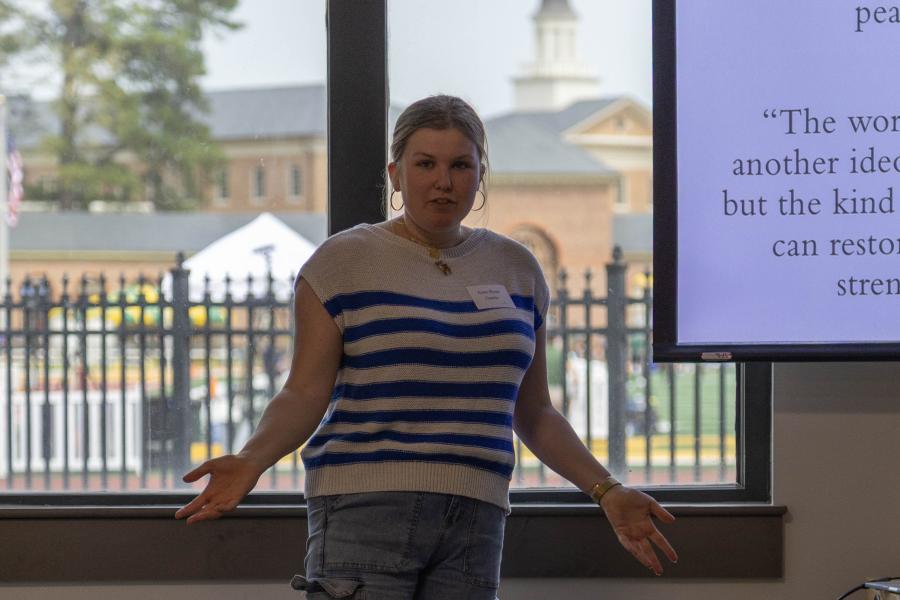 “I have learned just as much from my two semesters working on my honors thesis as I have from every psych course I’ve taken here,” said Des Roches. “This hands-on, independent experience has provided me with first-hand knowledge of the workings of the research process, as well as with a passion to continue to do research in this field.”
“I have learned just as much from my two semesters working on my honors thesis as I have from every psych course I’ve taken here,” said Des Roches. “This hands-on, independent experience has provided me with first-hand knowledge of the workings of the research process, as well as with a passion to continue to do research in this field.”
Cooper’s, Lankford’s, and Des Roches’s projects represent just a fraction of the thriving undergraduate research community present at W&M.
For a complete program of presenters at the Charles Center’s 2025 Spring Honors Research Symposium, click here.
















